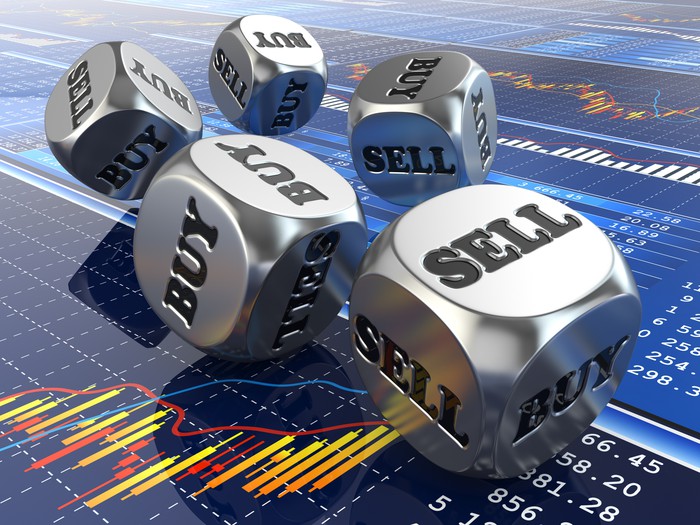Every day, Wall Street analysts upgrade some stocks, downgrade others, and "initiate coverage" on a few more. But do these analysts even know what they're talking about? Today, we're taking one high-profile Wall Street pick and putting it under the microscope...
It's Monday, and happily for energy investors, oil prices are up again -- nearly $56 for a barrel of WTI crude, according to our friends at OilPrice.com.
That's good news and bad news for shareholders in oil giant Chevron (CVX 1.54%), however. Good because up is better than down. Bad because even oil's per-barrel price of $55.80 is in fact down -- off 27% from its highs last October.
The topsy-turvy world of oil prices, however, isn't deterring British banker Barclays Capital from recommending Chevron today, initiating shares at overweight with a $145 price target. As the analyst argues, this oil stock is priced to move -- and perhaps growing faster than you think.
Here's what you need to know.

Image source: Getty Images.
The trouble with cheap oil
As oil prices have tumbled, shares of Chevron competitor ExxonMobil (XOM 1.15%) have slipped 13% over the past year, underperforming the S&P 500, which is still up about 2.5% for the period. Chevron stock, on the other hand, while also underperforming, is at least outperforming Exxon "by 11% over the last year," points out Barclays.
And rightly so, says the banker (which rates Exxon equal weight), because even after outperforming its rival, Chevron remains the better buy.
Why is that?
Chevron and Exxon by the numbers
Costing 15.2 times trailing earnings to Exxon's 16.7, Chevron stock appears by at least one yardstick to offer a better bargain than Exxon. Viewed from another angle, however, Exxon's 5.2% dividend yield seems more attractive than Chevron's (still respectable) 4.1%.
One reason Exxon pays more than Chevron, of course, is that it earmarks more of its income toward dividend checks. Exxon's payout ratio of 80% is a good 20 percentage points higher than Chevron's 60% payout ratio. However, Chevron's lower payout ratio also suggests the company has the ability to grow its dividend more than Exxon can.
Cash is king
And helping with that will be Chevron's unusual ability (for an oil company) to generate greater free cash flow than it reports as net income. In fact, according to Barclays, cash may be the No. 1 reason to prefer Chevron over Exxon.
Data from S&P Global Market Intelligence confirms this: Over the past 12 reported months, Chevron's total free cash flow amounts to $18.5 billion -- 25% more cash profit than the $14.7 billion it reported as GAAP net income.
In contrast, Exxon's $11.3 billion in FCF undershoots reported net income of $17.7 billion by 36%. What's more, according to a note today on TheFly.com, Barclays is warning that Exxon's free cash flow will soon turn into a "deficit" as the company continues to spend on capital investment even in a market of falling oil prices. (And this only reinforces my conviction to never buy Exxon.)
Meanwhile, with so much more cash available to deploy than Exxon, Barclays points out that Chevron is spending an average of $4 billion to $5 billion per year on stock buybacks -- smart purchases at a still-depressed stock price, and sufficiently large to reduce Chevron's share count by more than 2% per year.
What that means to investors
As the analyst explains, Chevron is only promising to grow its earnings by about 3% to 4% annually over the next five years. Combined with the 4%-ish dividend yield, that adds up to perhaps an 8% annualized return on the stock for investors.
But here's the thing: When you factor in the growth in earnings from stock concentration (i.e., profit being divided up among fewer and fewer shares), these buybacks effectively add 2% to Chevron's return to investors, making the total return on the stock something closer to 10%.
Is 10% growth fast enough to justify buying Chevron stock, which currently sells for 12 times free cash flow? I actually don't think it is -- Chevron is still not quite cheap enough to buy following the metrics that I use. But it's getting there, and Barclays is exactly right on at least one point:
With $7.2 billion more in annual free cash flow than Exxon, and a market capitalization nearly $70 billion cheaper, Chevron is definitely a better buy than ExxonMobil.




